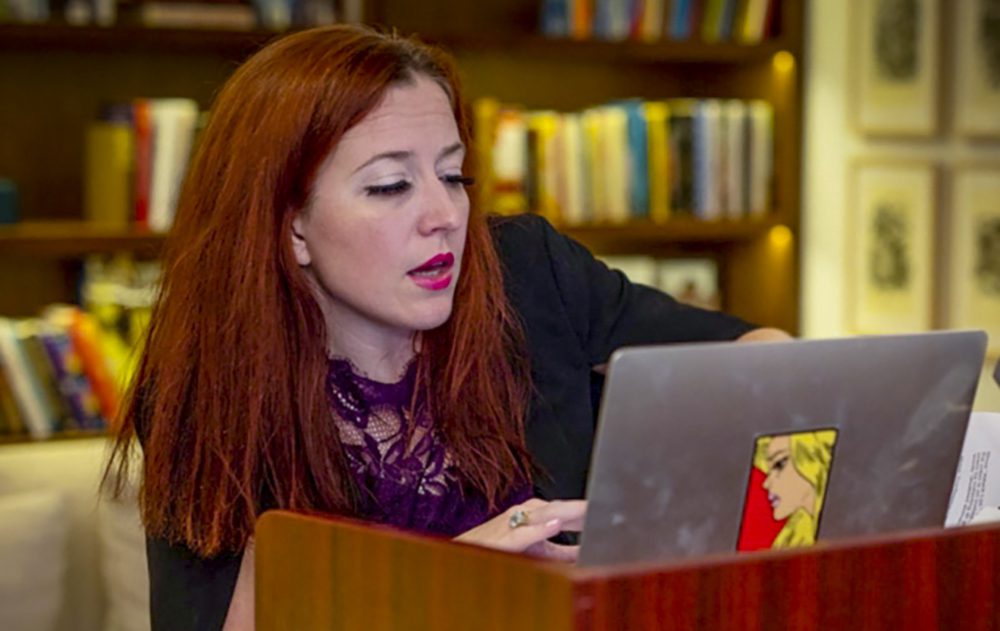
Clemson University professor of creative writing Jillian Weise has been awarded the PEN Oakland Josephine Miles Award for her collection of poems, Cyborg Detective.
The award is given under the American center of PEN International, a worldwide association of writers founded in London in 1921. PEN America is the largest of more than 100 centers worldwide with more than 7,200 members.
The Josephine Miles Award is given to American multicultural writers to “promote works of excellence by writers of all cultural and racial backgrounds and to educate both the public and the media as to the nature of multicultural work.” Weise will formally receive the award in a ceremony on December 5.
Weise’s prolific, honest, and often deeply personal writing made her a nationally renowned voice for disability rights. Being a disabled person herself, she says receiving this award is profoundly meaningful to her for many reasons.
“For one thing, the award is for multicultural work and therefore recognizes disability as a culture,” she said. “For another, the award is named after Josephine Miles – or ‘Jo Miles’ to her friends – and she’s an icon to me. Growing up disabled, she encountered many obstacles. In high school, she wanted to take poetry classes, but all the classes were held on the third floor. And no elevator. So instead, she took math and science on the first floor. She wrote a poem called ‘To Dr. Edwards, On Getting to the Third Floor.’ This resonates because I was recently invited to be hold a prestigious position as visiting writer for one year at a small liberal arts college in the northeast. Clemson supported this opportunity for me. But I was surprised to find out the Department of English was on the third floor. No elevator.
Weise says she was told she could teach in the school’s library, but knew she had to decline the position, even though she wanted it.
“It’s been 75 years since Jo Miles wrote that poem, and I will not accept the same conditions she had to accept,” said Weise.
That same determined spirit runs through the poems of Cyborg Detective, Weise’s third collection of poems.

In his glowing review of the book, Craig Morgan Teicher of NPR Poetry Review said, “With a voice that is sassy, funny, and justifiably bitter, Weise sets ableist America — and America’s literary subcultures — straight about a number of things in her third collection, in which every line snaps and many of them sting.”
This new award adds to Weise’s already impressive collection of honors, but she says she always tries to keep herself grounded when it comes to such things.
“There is joy in winning this award, as of course there is the vanity of it, which I am not immune to, and the joy of being disabled and a writer and an artist alongside my ancestors like Jo Mile,” said Weise. “And there’s the joy of the disabled writers who are coming up right now, who are in MFA programs across the country, or outside the academy, writing their poems from their beds, with their heating pads, and their prescriptions for pain relief, in whatever way works for them, and it’s my job to make sure they know this award is theirs, is ours, this belongs to us. It signals things are changing, and our disabled writing is a cultural revolution.”
Weise has been awarded residencies or fellowships from the Fine Arts Work Center, the Fulbright Program and the Lannan Foundation. She has edited at The Paris Review and The Iowa Review. Her work has appeared in The Atlantic, The New York Times, Narrative Inquiry in Bioethics, Granta, the Huffington Post, Tin House and elsewhere.
Get in touch and we will connect you with the author or another expert.
Or email us at news@clemson.edu

